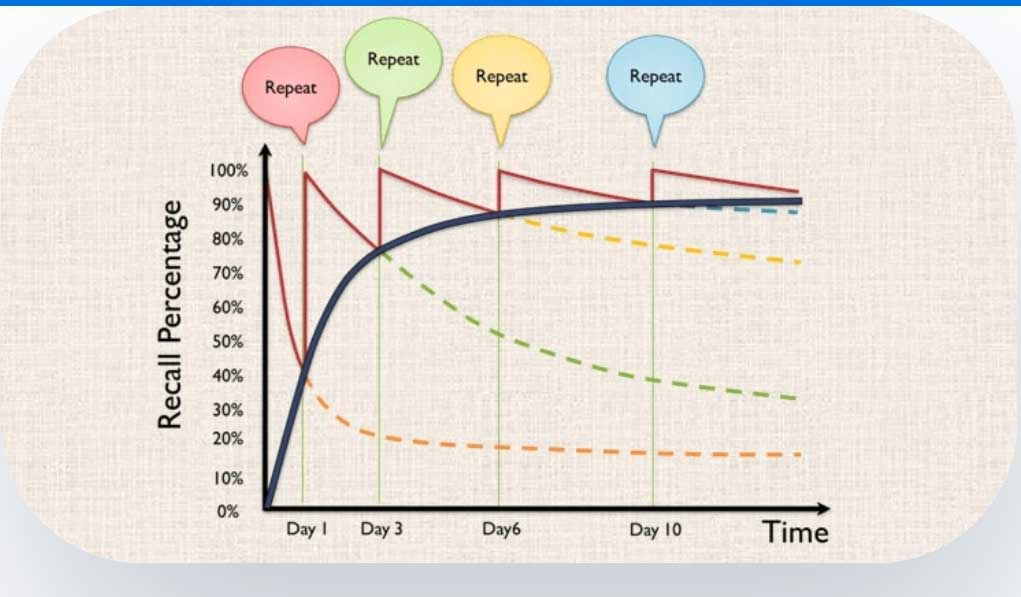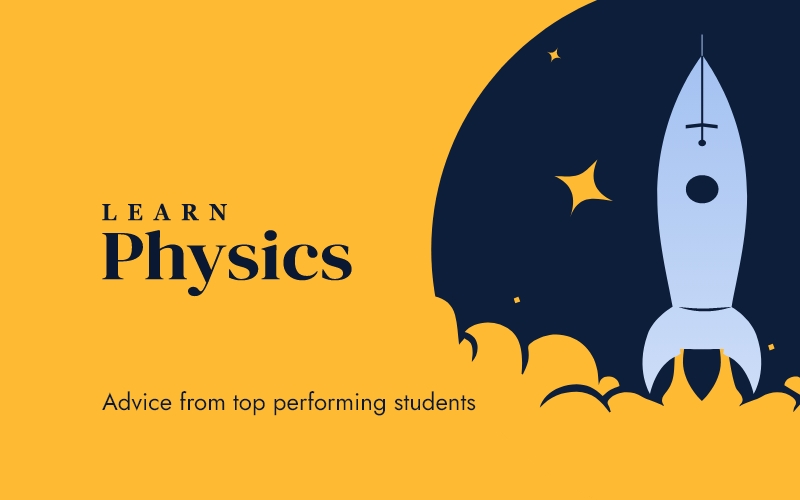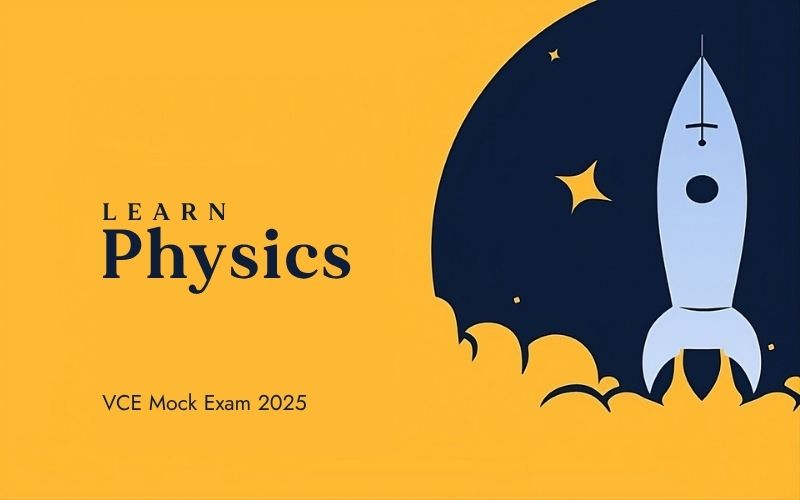What does it take to excel in VCE Physics exams and obtain an awesome study score? We took the question to our top performing Unit ¾ students in 2024. All students had scored 90% or over in a SAC, or were in the top 3 ranks for Physics in their schools this year. Students were asked to respond to the following 3 questions, in the hope that other students could pick up on their habits and improve!
- What was your study methodology for Physics?
- How did you score so well in your Physics SAC?
- What advice would you give to other students who are looking to score top marks?
Here are the responses, including study tips:
To score a 90+ in my sac I made sure to review over the area of study dot points on the study design and made sure that I could explain each point in any given question. After this the study design also gives you relevant formulas that you will need for the sac. I learn how these formulas work and implement them in checkpoints questions and checked my answers as I went. I discovered my weaker questions and did a bunch of them so that I didn’t make the same mistake in the sac. I scored well because I took the time usually a week or two to fully consolidate my understanding of the topic. If you want to score well you have to stay consistent with study, and try to learn about the forgetting curve so that you can practise spaced repetition to further build up your memory/knowledge!
Krish (98% scorer in AOS 2 SAC)

I really enjoyed the subject the SAC was on, so I was able to research and remember everything well enough. It was an essay SAC so I would assume I wrote succinctly and well. As well as that, we got a question to answer so I did a chapter’s worth of questions on each topic and ensured I knew just about everything we had learnt (it was mostly motors as I remember).
There are no ‘new’ tips I’d give anyone – just enjoy the learning and work for the dopamine when you get a question right! You won’t get it right all the time – I’ve had my fair share of low scores as well but do everything you can bring yourself to as it is all worth it.
(96% SAC results achiever)
For study methods I just used flashcards to memorise key terms in a certain VCE physics topic. There are plenty of apps that let you do this like Anki and Quizlet. Doing practice questions from the textbook and practice papers. Doing a little bit of studying each day for physics helped me to remember content so that I could do well in tests. Advice I would give is to consistently work on the topic that you are learning so that you can understand the concept and learn how to apply it through practice questions and also asking questions from your teacher to clarify any doubts that you have.
Jerimayah (87% SAC results achiever)
I studied by watching all the Edrolo videos and taking notes on all the theory as my school’s physics SACs are more based on theory than calculations. Once I understood all the content and had done all the Edrolo questions, I did as many checkpoints questions as I could plus some practice SACs that were available from past years to ensure that I was able to understand everything properly.
I only added what was necessary to my cheat sheet instead of cluttering it up with useless facts that I had already memorised so that I could make it as useful as possible. I practiced under timed conditions to replicate the conditions of the SAC and I ended up scoring really well. I also made sure to check over my answers at the end. Just to take notes on things that they need to understand better and not things that they already know, same for the cheat sheet (just add the things that you might forget and not those that you already know). Also, to do as many practice questions as possible especially from the checkpoints book.
(92% SAC results achiever)
Here are some other students who aced their VCE Physics SACs
To study for VCE physics and prep for the exam, I would first prioritise getting all the mandatory work out of the way as quickly as possible. That includes completing the reading, doing the textbook questions, and understanding the theory. In order to have a chance to do well in a subject like physics, you need to make sure that you TRULY understand the content in front of you, and not just rely on knowing the formulas. When I’m prepping for exams or SAC’s, I do exam papers or practice SAC’s under timed conditions in order to practice my pace and get faster. What I would often do is I would give myself less time to finish the practice SAC than the allocated timeslots written on the papers so I can get faster and force myself to perform under pressure. There’s a huge gap between people that score in the 85’s and those who score in the 95+ ranges. In order to achieve a perfect score on a SAC or exam, you have to be pretty competitive. My biggest advice to students who want to do well would be to get used to being bored. Studying and training your physics skills is not a romantic journey; you need to pull up your sleeves and just get the work done. This means sitting down for hours and doing practice papers, or sitting in silence and reading through the textbook.
(95% SAC results achiever)
My study methodology for VCE physics was mainly doing checkpoint questions. I remember that I felt overwhelmed by the sheer number of due dates and assignments that made it difficult to stay on top of the textbook questions for the Unit 3, Area of Study 3. I ultimately decided that I would rather much focus on the checkpoint questions rather than on completing the textbook questions as my SAC was fast approaching. The other thing was that I would understand the concept really well and this was achievable through watching the Edrolo videos, reading textbooks and Dan’s (Learn Physics’) study notes, as well as attending his class. This all allowed me to excel in my preparation for my SACs. During the actual SAC, I would read the question carefully, highlighting and identifying the key words and identifying what is given and what is asked. Overall, the key to success in VCE Physics or any other VCE subject is to practise, practise, practise and practise past papers so that you get exposed to exam style questions and those tricky questions as well. DO CHECKPOINTS!!
Uday (92% SAC results achiever)
The main study method I used was just doing practice questions. I noticed my regular method of flashcards wasn’t helping as much, because physics is about learning concepts and applying them not just remembering things. I used the Checkpoints books as well as any resources the school provided. When I ran out and had more time to revise, I would redo the harder questions over and over again to ensure I understood how to apply these concepts which helped me get a decent score.
Also, even if they aren’t needed all the time, creating cheat sheets after every topic helps condense the knowledge and acts as a quick review which also helps in getting a decent score. Overall, consistent and small bits of practice is what helps most, as well as cheat sheets so I’d recommend that.
(85% SAC results/ Top 3 Rank achiever)
How a student improved his Physics grades from 40% to 80%
I did multiple practice questions from checkpoints and repeated a question after a period of time if I got it wrong and repeated that over and over. I just did what I could, all I had to do was answer so I did that. Aim higher than what you want so just in case you don’t get the higher absolute value, you get close to your initial goal.
Bonus – A student who improved from 40% to 80%.
To conclude many high performing students mentioned learning from multiple sources, doing lots of questions, and learning from their mistakes. Incorporate several of the tried and true tactics from above to improve on your own grade. Remember that VCE is about consistency, and if you are looking to achieve results different to what you are currently achieving, you must start doing things differently!
Reach out to me if you need an extra hand with VCE Physics, or are looking for a VCE Physics tutor and I can help you understand this subject better!



